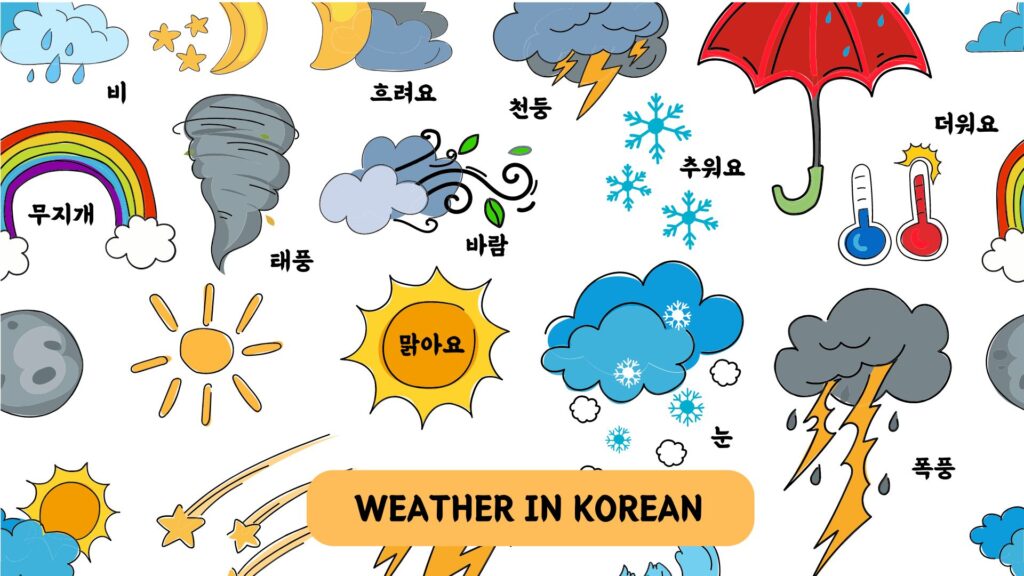
Knowing Korean words about the weather is really important for talking well, whether you’re going on a trip, chatting, or just talking about your day. In this guide, we’ll teach you important weather words in Korean, with easy examples to help you understand better. It’s good for people learning at different levels.
Basic Weather Terms
The word for “weather” in Korean is “날씨 (nalssi)”.
Example:
How’s the weather today?
– 오늘 날씨 어때요? [oneul nalssi ottaeyo]
Weather Phenomena Terms
Common Weather Phrases

There’s a lot of fog this morning
아침에 안개가 많이 끼었어요 (achime angaega mani kkieosseoyo)
In conclusion, learning weather-related vocabulary in Korean is essential for effective communication, whether you’re discussing daily activities, planning outdoor events, or simply engaging in small talk. By familiarizing yourself with common weather phrases and phenomena, you’ll be better equipped to navigate conversations and understand weather forecasts. Remember to practice using these phrases in context to improve your language skills and enhance your ability to communicate effectively in Korean.
Table of Contents

